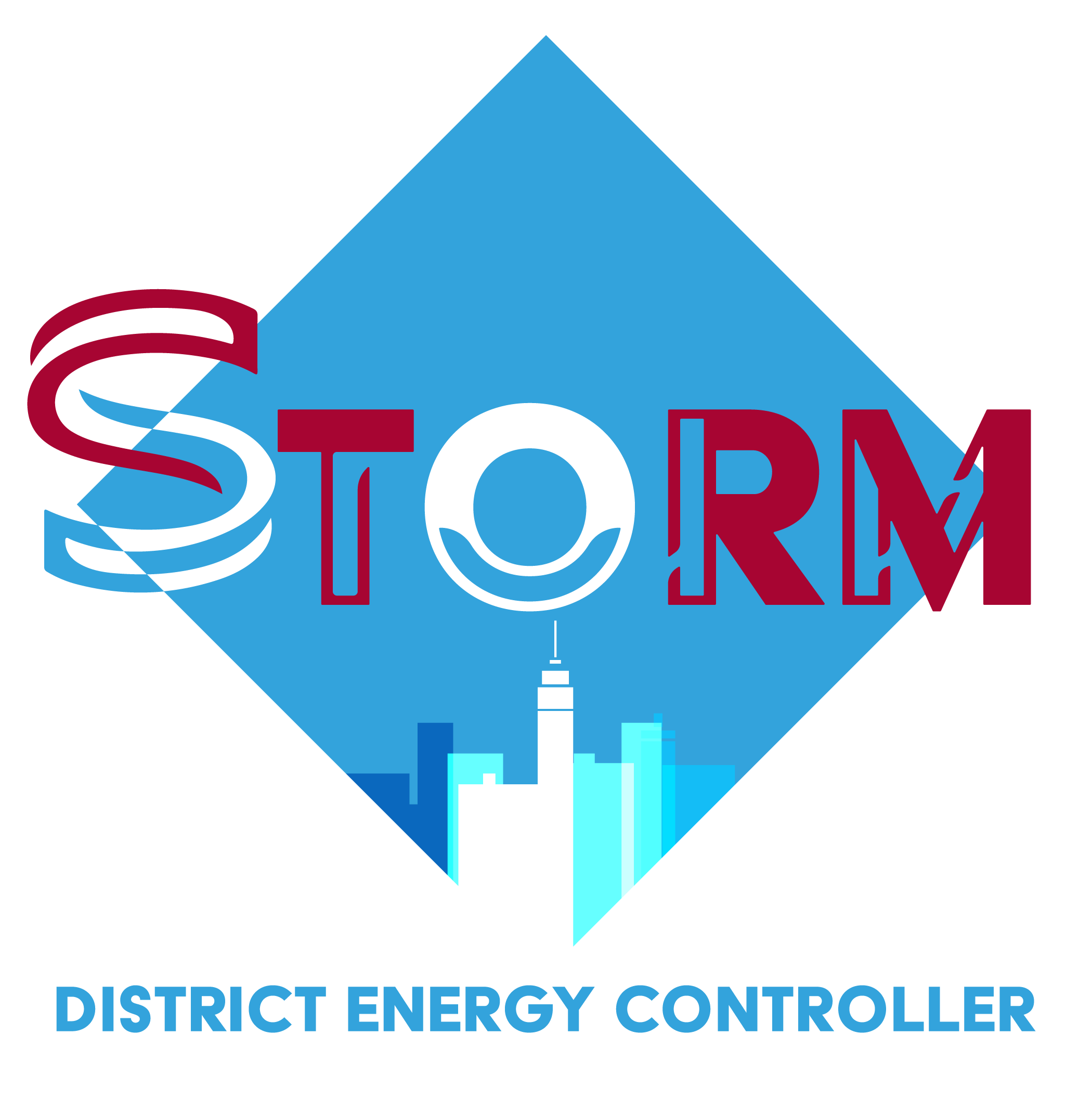Horizon 2020 research project leads to market-ready product: the STORM District Energy Controller
STORM District Energy Controller is a software technology platform that improves the profitability and sustainability of all district heating networks, both existing and new ones.
Proven technology
STORM District Energy Controller is well established technology and builds on scientific research carried out by VITO/EnergyVille, conducted in the Horizon 2020 project ‘STORM – Self-organizing Thermal Operational Resource Management“. The project ran from March 20215 to March 2019. It tackled energy efficiency and energy flexibility at district level by developing an innovative district heating & cooling (DHC) network controller.
The project partners have developed the controller based on self-learning algorithms, incorporated in the following software modules:
- The Forecaster: “What will the energy consumption of the heating network be for the next 24 hours?”
- The Planner: “Given the control objectives - “what do you want to achieve”: shave off peaks of your heat production, better use your CHP or large heat pump-, which optimal building cluster heat consumption profile can be achieved, taking into account the forecast?”
- The Dispatcher-Tracker: “Which individual control signals are necessary to be sent to the buildings to follow/track the optimal consumption profile?”
STORM demo sites
The innovative DHC network controller has been tested in two STORM demo sites: Mijnwater BV in Heerlen (NL) and Växjö Energi in Rottne (SE), where the resulting energetic, economic and environmental gains were assessed.
In the Rottne demo site a peak heat reduction of 12.75% was achieved.
In both sites a CO2 reduction of about 11000 tons per year was achieved.
Read about these and other results here.
New features and functionalities
The STORM District Energy Controller is a market-ready product, with future developments and new features on the horizon. Additional control features are being prepared. And the software technology is being used to venture out into the field of analytics. In fact, fault detection functionalities for substations are added to the platform in the Horizon 2020 TEMPO project. These new functionalities will make it possible to detect and diagnose heating substations in the network that do not perform optimally.
STORM controller benefits
- Improves the operational cost of your heat production mix
- Allows you to connect more heat customers with the existing infrastructure
- Reduces your CO2-emission at the production side
- Maximizes the use of waste heat and renewable energy sources
